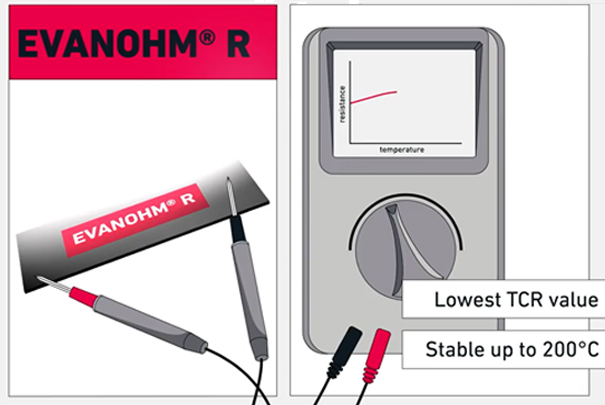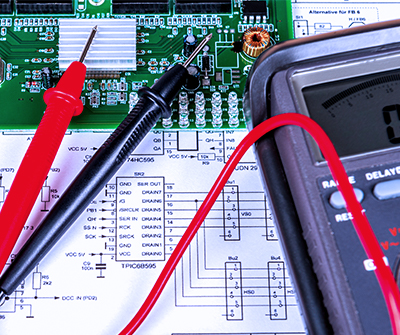Evanohm® R
Sensors and control systems in electric vehicles and precision instruments, as well as aerospace and defense systems, must provide highly accurate electrical measurements at high operating temperatures. These electrical circuits require resistors with a low temperature coefficient of resistance (TCR) to operate reliably and accurately.
Evanohm R has the lowest TCR available. It provides highly stable electrical resistance across a wide range of operating temperatures, remaining stable up to 200°C. This makes it more effective in high-power applications, such as electric vehicles, and is well suited for applications that require precise measurements across a range of operating temperatures. Battery management systems that feature Evanohm R resistors regulate voltage and current more precisely.



